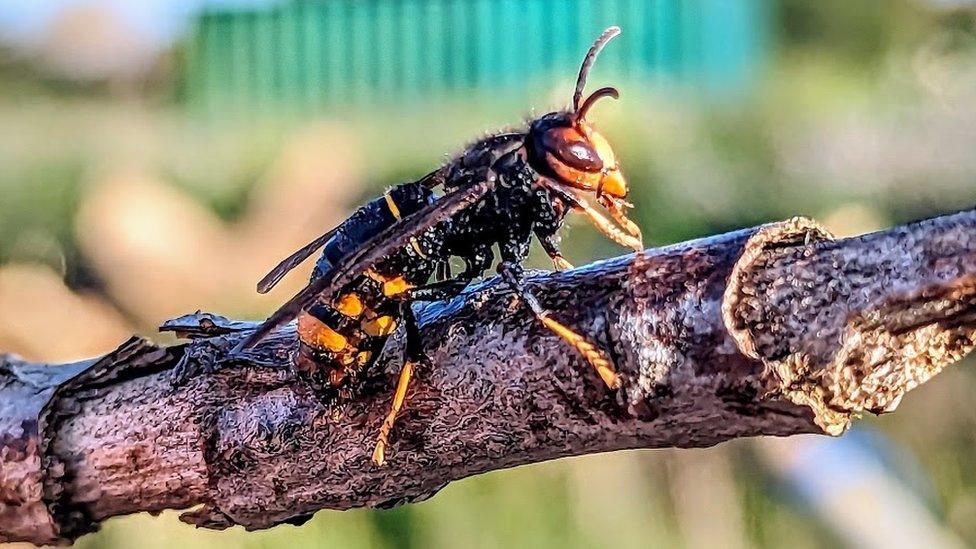Isle of Wight: Islanders urged to report Asian hornet sightings
- Published
- comments
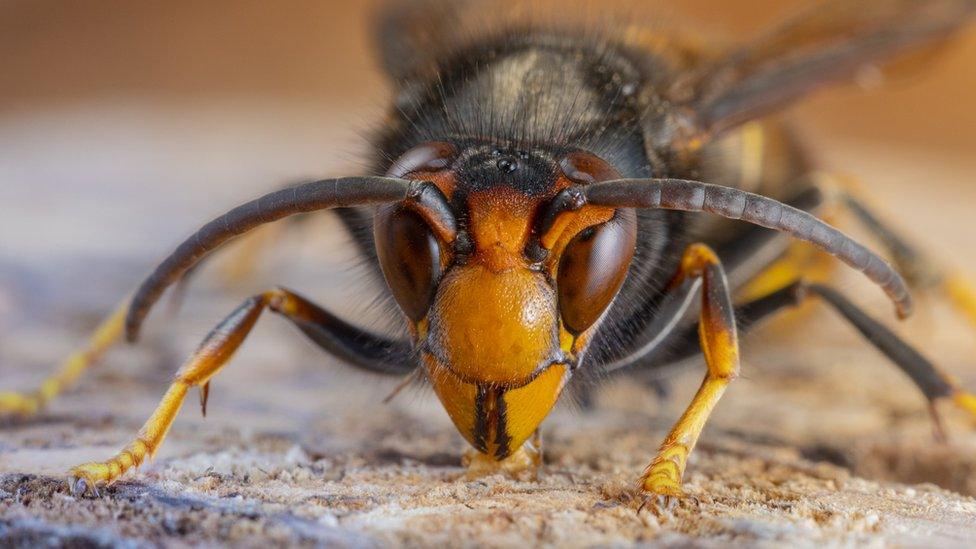
The invasive species are already widespread in mainland Europe
People on the Isle of Wight are being asked to report any potential sightings of Asian hornets.
The invasive species are more aggressive than European hornets and prey on native insects.
Nests have been found in East Sussex, Kent, Devon and Dorset in recent years, with the species already widespread in mainland Europe.
Smaller than native hornets, they can be identified by their orange faces and yellow tipped legs.
They also have velvety bodies, darker abdomens, and are only active during the day.
Isle of Wight Council said any suspected sightings should be reported to the Non-Native Species Secretariat (NNSS) online or via an app.
It also stressed the importance that people take care not to approach or disturb a nest.

Asian hornets are not generally aggressive towards people, but an exception to this is when they perceive a threat to their nest.
Tony Gillingham, the Isle of Wight Council's tree officer, said: "By ensuring we are alerted to possible sightings as early as possible, we can take swift and effective action to stamp out the threat posed by Asian hornets."
"The presence of Asian hornets can lead to a decline in native insect populations, which can have cascading effects throughout the food chain."
The species is native to Southeast Asia but can be transported around the world in cargo.
They are widespread in mainland Europe and can be blown across the English Channel.
In recent years the impact on native bee populations has been of particular concern.
"Many pollinating insects are predated by Asian hornets, which can in turn have a negative impact on wildflowers and crops which rely on insect pollination, which in turn affects us all."

Follow BBC South on Facebook, external, X, external, or Instagram, external. Send your story ideas to south.newsonline@bbc.co.uk or via WhatsApp on 0808 100 2240, external.
- Published4 September 2023
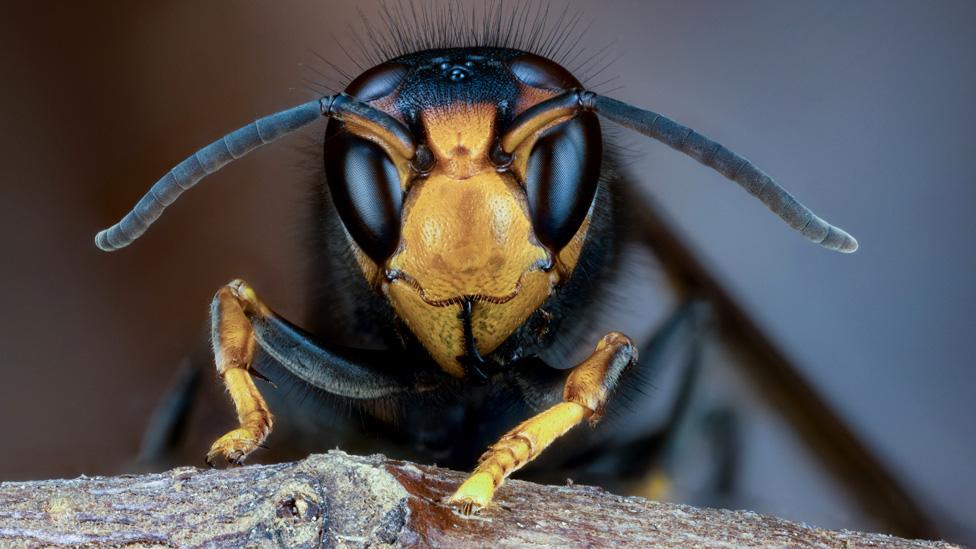
- Published2 January 2024
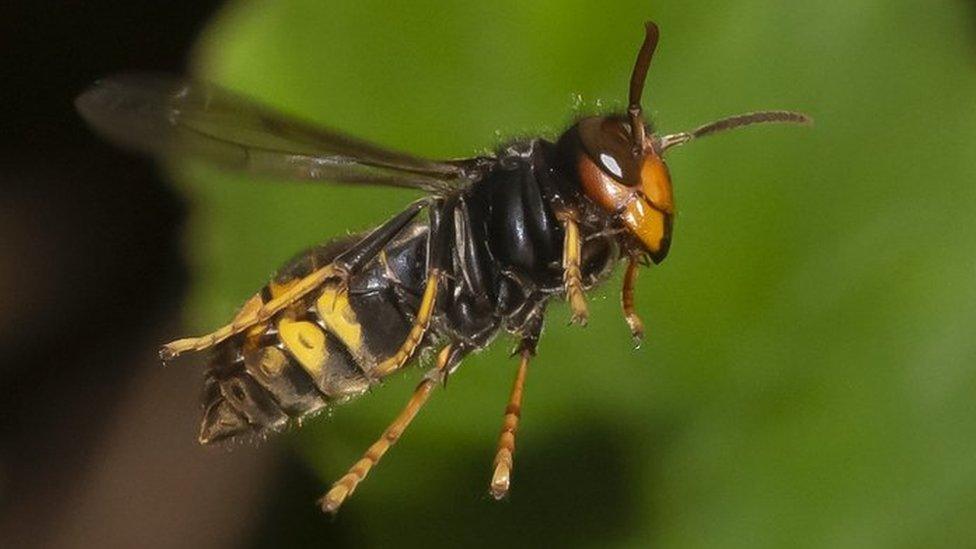
- Published7 October 2023
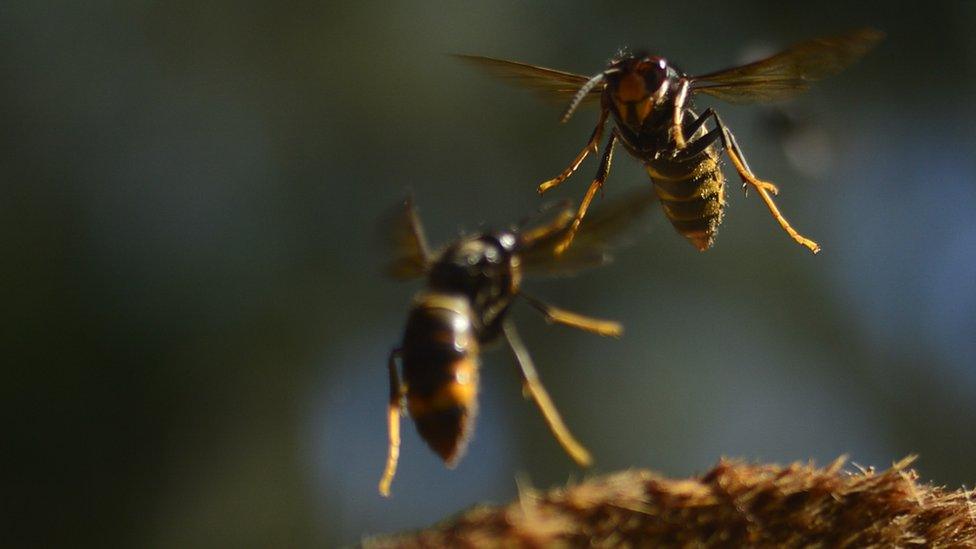
- Published20 September 2023
